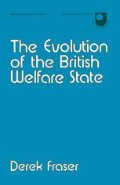Abstract
It was undoubtedly fear of social disorder in the two and a half centuries following the Black Death which gradually converted the maintenance of the poor from an aspect of personal Christian charity into a prime function of the state. With approximately one-third of her population removed by plague, England’s fourteenth-century economy had a chronic labour shortage and a paternalistic state attempted to introduce wage control by the Statute of Labourers of 1351. This was reinforced by the Poor Law Act of 1388 which not only tried to fix wages but also to prevent that mobility of labour which would cause wages to rise. Laws against vagrancy were thus the origins of poor relief, and whenever economic conditions prevailed which encouraged men to wander the country in search of employment, the late medieval and early modern English state sought to restrict this mobility for fear of its social consequences.
Hark, hark, the dogs do bark
The beggars are coming to town.
Access this chapter
Tax calculation will be finalised at checkout
Purchases are for personal use only
Preview
Unable to display preview. Download preview PDF.
Notes and References
Sydney Smith, Edinburgh Review (1820), quoted by J. R. Poynter, Society and Pauperism (1969) p. 330.
For these reforms, see J. D. Marshall, ‘The Nottinghamshire Reformers and Their Contribution to the New Poor Law’, Economic History Review, 2nd ser., XIII (1961).
M. Blaug, ‘The Myth of the Old Poor Law and the Making of the New’, and ‘The Poor Law Report Re-examined’, Journal of Economic History, XXIII (1963) and XXIV (1964).
S. E. Finer, The Life and Times of Edwin Chadwick (1952) p. 94.
Quoted by H. N. Bunbury (ed.), Lloyd George’s Ambulance Wagon (1957) p. 122.
Author information
Authors and Affiliations
Copyright information
© 1973 Derek Fraser
About this chapter
Cite this chapter
Fraser, D. (1973). The Poor Law. In: The Evolution of the British Welfare State. Palgrave, London. https://doi.org/10.1007/978-1-349-15494-4_3
Download citation
DOI: https://doi.org/10.1007/978-1-349-15494-4_3
Publisher Name: Palgrave, London
Print ISBN: 978-0-333-11189-5
Online ISBN: 978-1-349-15494-4
eBook Packages: Palgrave Social & Cultural Studies CollectionSocial Sciences (R0)

